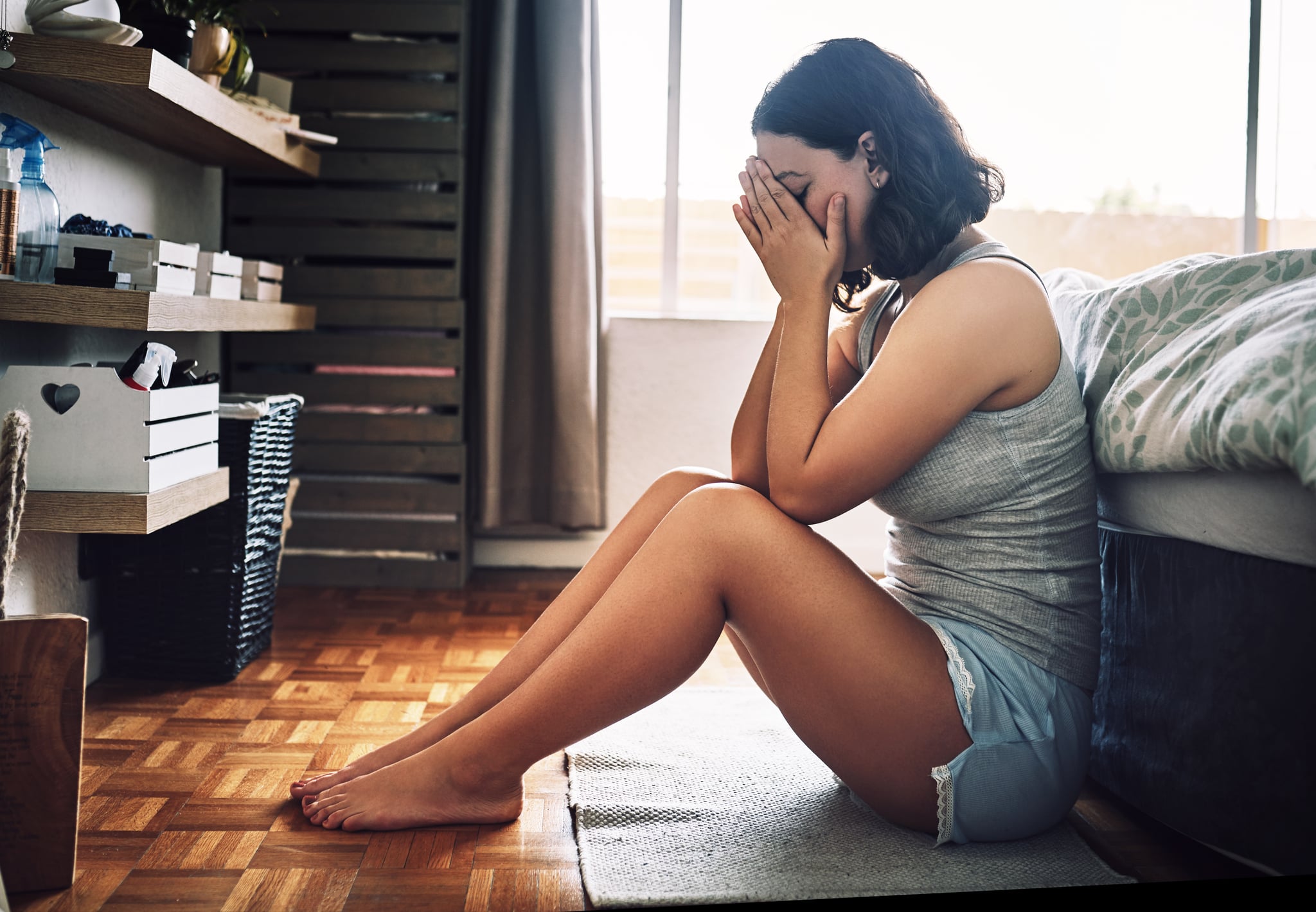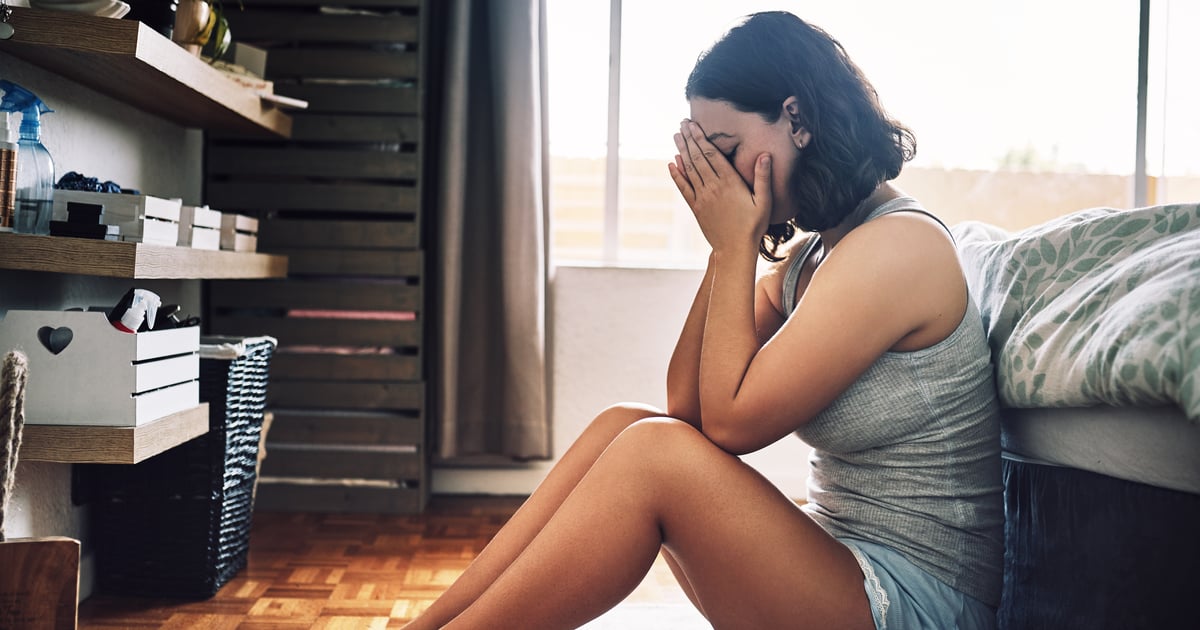
For most of my life, feeling sad is something I tried to hide. I was frequently told that “girls are too emotional” and to “toughen up,” so I equated crying as a weakness, a flaw, something to be ashamed of. I thought being sad was something I could just ignore, and it would go away. An editor with tough feedback? It’s OK, I’ll just try twice as hard next time. Mom diagnosed with cancer? No big deal, she’ll get through it, and I’ll be her biggest cheerleader. But over the years, I noticed that those feelings never actually went away — instead, my emotions would come out in other unexpected and surprising ways, like anger, anxiety, and even panic attacks. It almost makes crying seem easy!
A few weeks ago, my mom texted me that she was feeling sad, and it was like a wake-up call for me. We have a perpetually happy, always-have-a-motivational-quote-on-standby type of family dynamic — which doesn’t leave much room for admitting you were wrong, talking about depression, or expressing how sad you are. But my mom, a woman who comforted her children as she was shaving her head during chemo, admitted to being upset. That inspired me to try it, too. What if I acknowledged when I felt sad and actually allowed myself space for those feelings instead of just trying to push through like I always do? The results were amazing; it actually helped my anxiety.
I’ve committed to letting myself be sad over the last month. I only have a few simple rules: I will name what it is that’s making me sad out loud or in a journal, I will allow myself to be sad for as long as it takes, and I will not judge myself for anything I feel sad over. I applied these rules to everything I was sad about during that time period, which ranged from being out of ice cream to going through a chemical pregnancy. I told myself it’s OK to feel sad, and I’m not less of a person because this upsets me. Sometimes I’ll cry, sometimes I’ll write, a few times I’ve texted my mom to tell her about it. But I’ve always given myself time to process my emotions.
This subtle shift has dramatically improved my mental health. I usually push things to the side, not thinking about problems or emotions until they eventually boil over. I practically have a degree in the art of letting stress build up to unmanageable levels, which almost always results in overreacting or seemingly random panic attacks later on. Yelling at my kids for playing in the pantry? Blowing up at my husband for buying the wrong kind of almond milk? Those are things I’m not proud of and might have avoided if I had properly dealt with what was actually making me upset in the first place.
I usually push things to the side, not thinking about problems or emotions until they eventually boil over.
Giving myself time to be sad, however long or short I need, is so freeing — and so far, it has actually helped the sadness go away, without creeping back up. This take-charge-of-your-sadness attitude has helped me cope with problems and overcome challenges in my life. It’s helped me to manage my anxiety and have fewer panic attacks. It’s helped me to be less sad! As a bonus, it’s helped me to have more empathy when my kids or other people are feeling sad, instead of trying to get them to quickly move past their feelings and on to happier things like I usually do.
Look, I’m not saying I’m completely perfect or cured from a lifetime of pushing down my emotions. I know it’s a work in progress, but now that I know how great it feels to feel sad on my own terms, I never want to stop. This is me, going back to my preteen days of crying in my closet listening to Taylor Swift. Except now I have better shoes, a better speaker, and a better grasp on who I am and my own worth. Women are emotional — people are emotional — and I don’t give a damn anymore.
